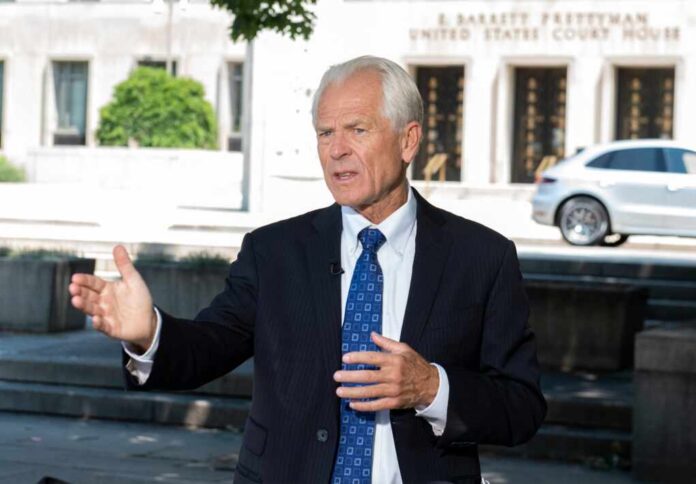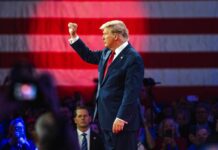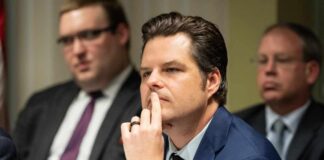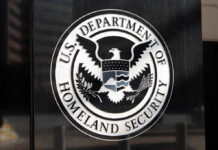
On Friday, former Trump administration adviser Peter Navarro is appealing to the Supreme Court to avoid starting his four-month prison sentence next week. This comes after his conviction for contempt of Congress, an unprecedented case highlighting the clash between congressional mandates and executive privilege. Navarro’s legal team filed an emergency request with Chief Justice John Roberts, asking he be allowed to remain free on bail while his appeal is underway.
The conviction stems from Navarro’s refusal to comply with a congressional subpoena issued by the now-defunct Jan. 6 committee hand-selected by former Speaker Nancy Pelosi (D-CA). His defense has centered on the assertion of executive privilege.
Former Trump economic advisor Peter Navarro filed an emergency appeal with the Supreme Court, a last-ditch effort to avoid reporting for his prison term as he appeals his conviction for contempt of Congress. https://t.co/b270DfJV3O
— The Hill (@thehill) March 16, 2024
Navarro’s legal challenges have thus far been unsuccessful in lower courts. The U.S. Court of Appeals for the District of Columbia Circuit recently affirmed the decision that Navarro’s appeal does not present a “substantial question of law,” dismissing his claims regarding the need for a formal invocation of executive privilege by President Trump.
As the date for Navarro to report to prison nears, the Supreme Court’s response could mark a pivotal moment in interpreting executive privilege and its implications for congressional oversight. The high court is currently considering President Trump’s appeal regarding the nature and applicability of executive privilege as set out in the Constitution. A final ruling in that matter is expected by the end of the court’s term in the last week in June.
Navarro’s appeal is comparable to the case of Steve Bannon, another Trump adviser. Bannon was also convicted by a progressive D.C. jury for defying a congressional subpoena but has remained free while appealing his conviction. Navarro’s lawyers are expected to argue that there should be parity between the two cases which are based on very similar convictions.
Navarro’s appeal to the Supreme Court represents a critical juncture in U.S. legal history. As in President Trump’s defense of the politicized prosecution brought by Special Counsel Jack Smith, Navarro’s case tests the boundaries of executive privilege, a principle meant to protect the confidentiality of presidential advice and decision-making.

















